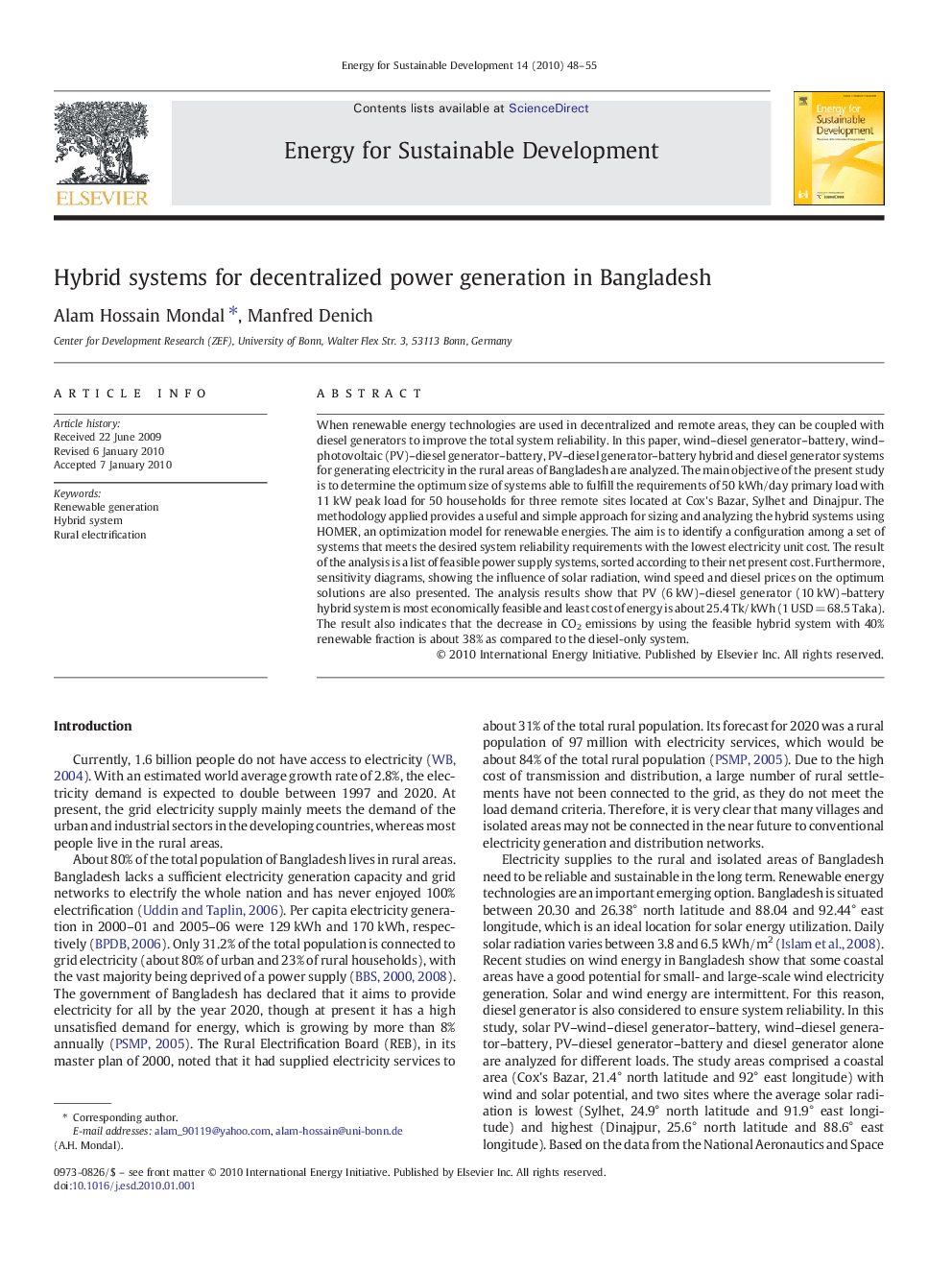| کد مقاله | کد نشریه | سال انتشار | مقاله انگلیسی | نسخه تمام متن |
|---|---|---|---|---|
| 1047195 | 945195 | 2010 | 8 صفحه PDF | دانلود رایگان |

When renewable energy technologies are used in decentralized and remote areas, they can be coupled with diesel generators to improve the total system reliability. In this paper, wind–diesel generator–battery, wind–photovoltaic (PV)–diesel generator–battery, PV–diesel generator–battery hybrid and diesel generator systems for generating electricity in the rural areas of Bangladesh are analyzed. The main objective of the present study is to determine the optimum size of systems able to fulfill the requirements of 50 kWh/day primary load with 11 kW peak load for 50 households for three remote sites located at Cox's Bazar, Sylhet and Dinajpur. The methodology applied provides a useful and simple approach for sizing and analyzing the hybrid systems using HOMER, an optimization model for renewable energies. The aim is to identify a configuration among a set of systems that meets the desired system reliability requirements with the lowest electricity unit cost. The result of the analysis is a list of feasible power supply systems, sorted according to their net present cost. Furthermore, sensitivity diagrams, showing the influence of solar radiation, wind speed and diesel prices on the optimum solutions are also presented. The analysis results show that PV (6 kW)–diesel generator (10 kW)–battery hybrid system is most economically feasible and least cost of energy is about 25.4 Tk/kWh (1 USD = 68.5 Taka). The result also indicates that the decrease in CO2 emissions by using the feasible hybrid system with 40% renewable fraction is about 38% as compared to the diesel-only system.
Journal: Energy for Sustainable Development - Volume 14, Issue 1, March 2010, Pages 48–55